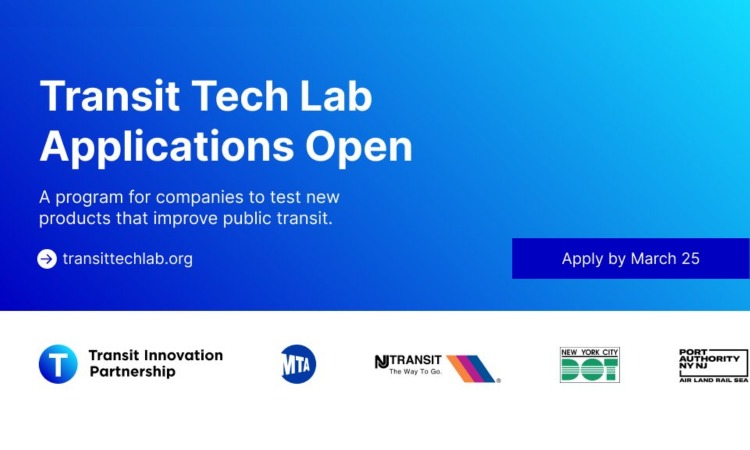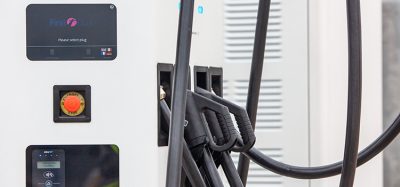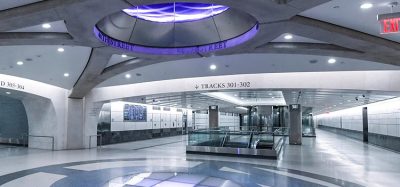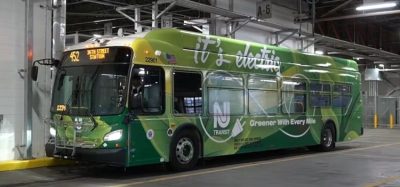New York transit agencies launch competition to aid COVID-19 recovery and sustainability
- Like
- Digg
- Del
- Tumblr
- VKontakte
- Buffer
- Love This
- Odnoklassniki
- Meneame
- Blogger
- Amazon
- Yahoo Mail
- Gmail
- AOL
- Newsvine
- HackerNews
- Evernote
- MySpace
- Mail.ru
- Viadeo
- Line
- Comments
- Yummly
- SMS
- Viber
- Telegram
- Subscribe
- Skype
- Facebook Messenger
- Kakao
- LiveJournal
- Yammer
- Edgar
- Fintel
- Mix
- Instapaper
- Copy Link
Posted: 2 February 2022 | Intelligent Transport | No comments yet
Five New York transit agencies have launched the fourth round of the Transit Tech Lab, with two challenges set to seek solutions that aid the transport network in post-pandemic recovery and emission reduction efforts.


Credit: Transit Tech Lab
On 31 January 2022, the Metropolitan Transportation Authority (MTA), the Port Authority of New York and New Jersey (PANYPJ), NJ TRANSIT, the New York City Department of Transportation (NYC DOT) and the Partnership for New York City announced the launch of the fourth round of the Transit Tech Lab, calling for technologies to aid in the agencies’ pandemic recovery and to meet sustainability objectives.
The agencies are seeking solutions that restore customer confidence in public transportation, improve resilience to extreme weather and further reduce the region’s carbon footprint, as well as new tools that better predict travel patterns, identify extreme weather impacts in real time and support clean and efficient freight deliveries.
The fourth competition round consists of two challenges:
Recovery Challenge
The Recovery Challenge looks to answer the question, ‘How can we support the recovery of public transit and deliver service that gets customers back?’, calling for technologies and approaches that help to make transit more responsive to the changing needs of New Yorkers, while ensuring that customers and employees feel safe.
Examples include:
- Real-time regional data tools that provide insights on new travel patterns
- Tools that streamline crew scheduling to ensure optimal staffing across operations
- Enhancements to OMNY – MTA’s successful contactless payment system – to improve the customer experience
- Technologies that improve safety and deter adverse events, including employee assaults and track intrusions.
Sustainability Challenge
On the other hand, the Sustainability Challenge looks to answer, ‘How can we build a more climate resilient transportation system while also increasing energy efficiency and reducing greenhouse gas emissions of our fleets and facilities?’, calling for technologies that help to make public transportation more responsive to extreme weather.
It also calls for innovative methods and measures to help the transportation sector to meet state and federal goals on reducing greenhouse gas (GHG) emissions.
Examples include:
- Real-time asset tracking tools to prevent system failures, reduce operational costs and improve energy efficiencies
- New technologies to improve Electric Vehicle (EV) bus range, increase battery performance, develop EV charging infrastructure and rapidly deploy zero-emission buses and locomotives
- Tools to support clean and efficient urban freight deliveries
- Climate resiliency innovations to protect transit assets from flooding during coastal events and severe rainstorms
- New techniques to allow customers to report extreme conditions in real time.
Representatives from each agency will evaluate companies based on the technology’s impact, product, team and value. Selected companies will move forward to conduct a proof-of-concept over an eight-week period.
Natalia Quintero, Senior Vice President of Innovation at the Partnership for New York City, said, “We look forward to working closely with the tech community to help to restore rider confidence and create a greener regional transportation network. This is a great opportunity for growth-stage companies to test their solutions in a system that serves as the economic backbone of the tri-state area. We’re thankful to our partners at the MTA, Port Authority, NJ TRANSIT and NYC DOT for their commitment to leveraging tech as we bring riders back and tackle the adverse impacts of climate change.”
Michael Wojnar, Senior Advisor for Innovation & Policy at the Metropolitan Transportation Authority, said, “Since its inception in 2018, the challenges conducted by the Transit Tech Lab have provided tremendous value by connecting the MTA to firms with innovative solutions to problems that have plagued our system for years. [In 2022], we look forward to tackling two areas of critical importance with the Recovery Challenge and the Sustainability Challenge – reducing our carbon footprint and bringing customers back to the system.”
Related topics
Air Quality, Alternative Power, COVID-19, Passenger Experience, Public Transport, Security & Crime, Sustainable Urban Transport, Ticketing & Payments, Vehicle & Passenger Safety, Workplace
Related cities
New York
Related countries
United States
Related organisations
NJ TRANSIT, NYC Department of Transportation, Port Authority of New York and New Jersey, The Metropolitan Transportation Authority (MTA), The Partnership for New York City, Transit Tech Lab
Related people
Michael Wojnar, Natalia Quintero








